14 Evidence-Based Health Benefits and Uses of Aloe
Are you one of those people who do not feel comfortable in the dull and monotonous environments?
Are you one of those people who enjoy having a plethora of flowers in their rooms?
Is adding a lovely touch of green to your home one of your favorite household décors?
You have probably taken that step of putting in aloe vera into your home.
But are you familiar with the fact that your favorite potted plant has many surprising benefits for your health?
What is Aloe?
Aloe, also written Aloë, is a class containing over 500 species of flowering succulent plants.
The most widely known species is Aloe vera.
Aloe vera is a cactus plant that belongs to the Liliaceae family.
It can be found in parts of Africa and India due to the dry climate conditions.
There are 250 species of Aloe vera, yet only 4 of them are known for their health benefits, among which is Aloe Vera Barbadensis.
Aloe is a succulent plant.
What makes it distinctive from other plants is its leaves that are thicker and fleshier.
Aloe has the ability to retain water.
Unlike most plants, succulent plants have their thick leaves which serve them as a water storage.
Having water stocks, these plants are enabled to survive through droughts.
Aloe vera is a perfect example of a succulent plant with thick leaves filled with juice.
In the ancient times, the Greeks and Romans used Aloe vera to treat wounds.
With the passing of time, Aloe vera had been studied more and the humanity got introduced with its healing powers.
In the Middle Ages, the yellowish liquid found inside the leaves was favored as a natural cleanser.
The Chinese and European people got in touch with this plant in the 17th century.
Ever since, it has been used for various reasons.
The Sanskrit name for Aloe vera is kumari, which means princess.
It is a reference to maintain the youthful beauty and a healthy glow of your body.
Also, the ancient Egyptians called it the “plant of immortality”, and used it in burial rituals.
Moreover, Cleopatra used aloe gel on her face and body as part of her beauty regimen.
In the medical terms, it is best known as one of the leading therapies of sunburns.
From treating minor skin infections, cysts, diabetes to relieving heartburn and slowing the spread of cancer, it has become one of the most powerful plants to heal many physical conditions and illnesses.
What’s more, scientists have come up with many amazing byproducts that also have a great power of curing various body problems.
This plant has long been part of alternative medicine.
In India, there is a system of natural healing called Ayurveda, which is based on Aloe.
Its main purpose is treatments of skin conditions and improving the function of the digestive and immune system.
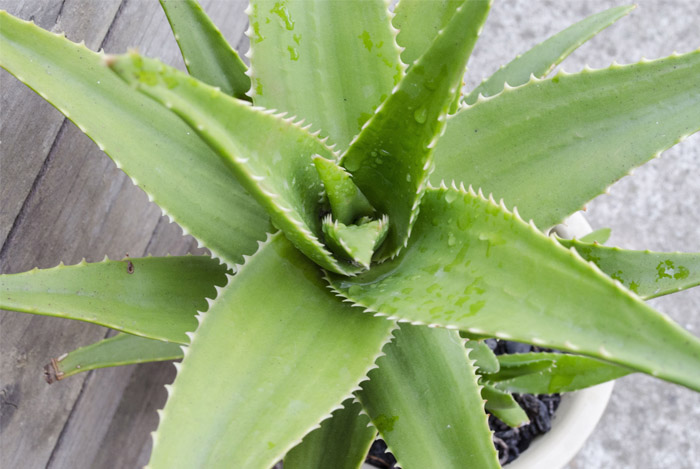
Health Benefits of Aloe
Aloe Treats Sunburn
The fact that aloe is great for your skin is its best-known health benefit.
It is a great skin rejuvenator.
It can treat first and second-degree burns successfully.
Not only does it treat sunburns, but it also reduces the time of healing by 9 days compared to conventional medicine methods (1).
The healing time of wounds is reduced to the nutritional and antioxidant properties of aloe.
Topical medication is one of the ways of applying this plant onto your skin.
By applying aloe vera topically on the skin, you can soothe inflammation, abrasions, psoriasis and even bug bites.
Hence, aloe vera enhances collagen and hyaluronic acid that helps skin rejuvenation.
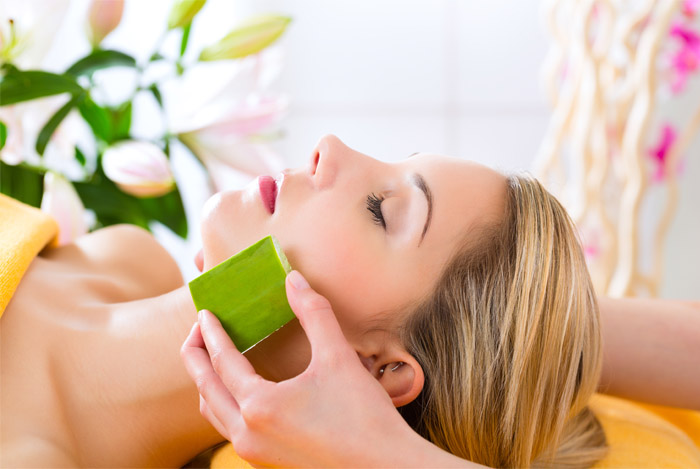
Other Skin Benefits of Aloe
Aloe can also be a natural painkiller, helping you with pain relief of wounds.
The best thing about this plant is that you do not have to wait for the soothing effect because it is immediate.
Aloe can also act as an antipruritic.
Antipruritics are substances that help you with itching relief or itching prevention.
Moreover, aloe vera is an astringent due to its great capacity to contract body tissues.
That being said, it is used to reduce bleeding from minor abrasions.
Aloe vera is 99% water, being a great way to hydrate, moisturize and rejuvenate the skin.
Not only can it rejuvenate your skin from sunburns, but it can also increase the elasticity of the skin because of collagen and elastin repair, which makes it more flexible (2).
Withal, aloe is an emollient.
Being a great oxygen supplier of the skin cells, it strengthens the skin and induces improved blood flow throughout your entire body.
Therefore, it soothes and softens the skin.
The bottom line is that aloe is used to heal chronic skin problems, such as psoriasis, acne, and eczema.
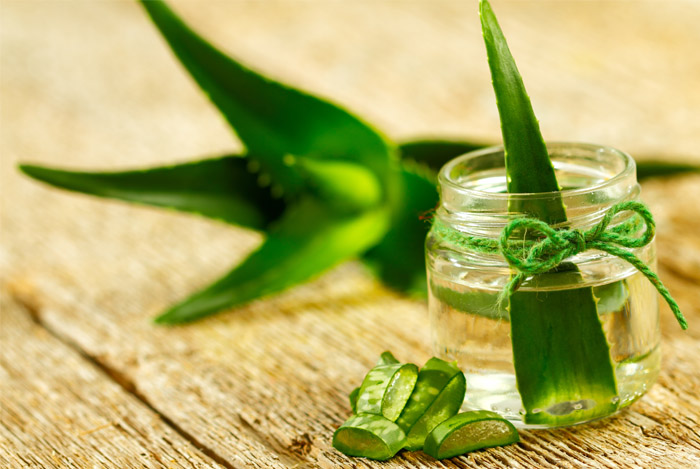
Aloe Helps in Detoxification and Aids in Digestion
Aloe vera is a gelatinous plant food.
Full of amino acids, vitamins, and minerals, it is one of the most effective natural cleansers.
Consuming gelatinous plant foods helps you to detoxicate your colon for their cleansing capacity.
Some consider it a laxative while others think the effect should be attributed to the digestive qualities of the plant.
These gels move through the intestinal tract, absorb the toxins along the way and drop them through the colon.
This will help your body to get detoxified, but it will also bring the regular and proper elimination of body waste.
When you are constipated, there is a high likelihood that your body is going through some kind of inflammatory and irritating heat.
Due to its moistening effects, it helps your body to get rid of any waste.
The key compound responsible for the moistening effect is called aloin.
It is known for the laxative effects (4, 5, 6).
Karen Masterson of the Vitamin Trader claims that aloe vera’s pH levels tend to be more acidic.
Thus, when aloe vera is digested and absorbed, hydrochloric acid improves digestion because the body produces it more due to the aloe intake.
Not only will digestion be improved, but the body will start to build up the collagen and tissue structure to screen out allergies.
It is no wonder that this plant is able to reduce pain and irritations.
This is because it has anti-inflammatory properties found in the yellow sap of the aloe.
Besides reducing skin irritations, reducing pain, and swelling connected to allergy symptoms, these benefits also prevent some more serious body conditions such as cancer.
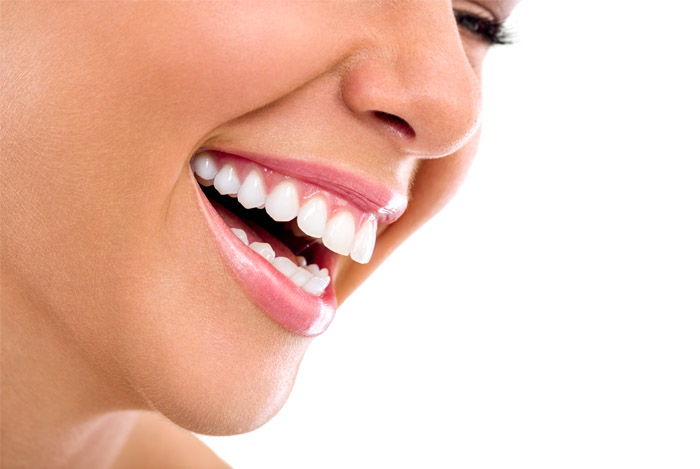
Aloe Fights Dental Diseases
When people fight gum, teeth, and mouth diseases, they usually discuss potential chemical-based mouthwashes with no alternatives for them.
The studies have shown that aloe vera extract is not only safe but also helpful in the treatment of various diseases related to the periodontal region (8).
To a person who intakes aloe vera, gum diseases like gingivitis or periodontitis will be the distant past.
What’s more, this aloe vera extract is completely safe to use because of the plant’s natural ingredients such as vitamin C.
The vitamin C effects prevent teeth plaques, and bleeding or swelling gums.
Apart from that, its capability of being a natural antiseptic can help in the situations when normal cleaning is out of the question.
Its antifungal properties are of a great help when it comes to the problems of denture stomatitis, aphthous stomatitis, or canker sores, which is the most common dental disease.
At some point in their lives, people notice changes occurring in their mouths.
A kind of lump that forms underneath the lip, inside the mouth, and lasts for about 7-10 days is a clear indicator the person suffers from canker sores.
Studies have shown that Alea vera accelerates the treatment time and reduces the size of the ulcers (9).
Many people fear physical pain when treating a wound of any kind.
Aloe vera’s application, either as a patch or gel, has been proven to reduce the pain of the healing of mouth ulcers (10).
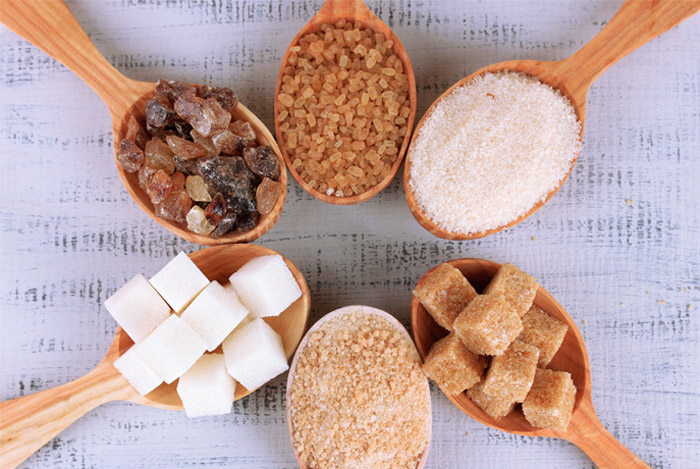
Aloe Lowers Cholesterol and Blood Sugar
Throughout the history, the number of diseases aloe vera treats and the number of positive effects it brings has been increasing.
This is the case with a traditional diabetes remedy (11, 12).
When it comes to lowering cholesterol and blood sugar, there is no clear evidence to prove this statement.
Even though there is a question mark over the aloe’s usefulness for treating diabetes and obesity, a few studies are in favor of aloe vera.
This is promising and shows that this plant has the future in this field.
The points in favor are that it enhances insulin sensitivity and helps improve blood sugar management.
Also, several animal species besides humans have had promising results from consuming Aloe vera extract. (13, 14, 15).
According to one another study, aloe vera brings blood sugar levels down (16).
Namely, patients from 40-60 years with 2 diabetes were given insulin shots.
They were taking a dose of the aloe vera extract capsule every 12 hours.
The results were as follows: “The results suggest that aloe gel improves glycemic control without any effects on the lipid profile and hepatic, renal or other adverse effects in the type 2 diabetic patients. Thus, the results indicate that aloe gel has also a beneficial effect on glycemic control in patients with advanced T2DM needing insulin.”
No matter how promising the results are, one should take into account the plausibility of these studies.
Taking the quality of the studies into consideration, it is premature to recommend Aloe vera for this purpose.
On the contrary, there are the points proving that Aloe can even be harmful to one’s health.
Namely, in several cases, liver damage has been reported due to the long-term ingestion of Aloe vera supplements (17).
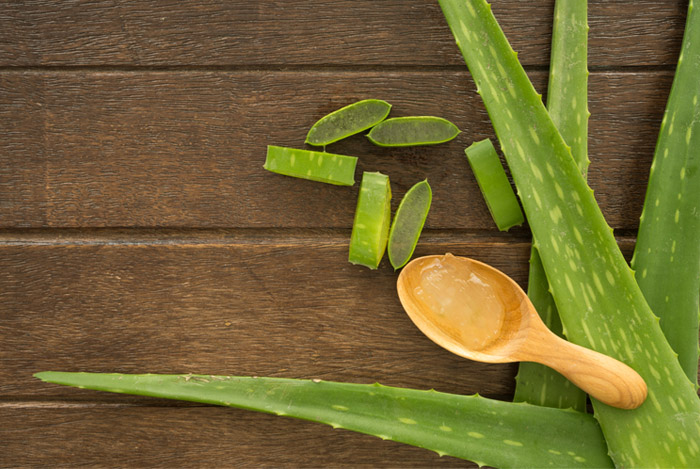
Aloe Prevents Cancer
According to Cancer Research UK and their studies, there is a strong link between aloe and cancer prevention.
The studies from 2010 took lab mice for an experiment.
The results were that aloe vera could affect skin cancer, if not prevent it.
Unfortunately, only one of the studies had a favorable outcome for aloe vera.
The first one showed that applying aloe onto the skin or taking it orally reduces the number of skin cancers in mice.
On the other hand, in the other study aloe vera was found to increase skin cancer numbers in female mice.
Due to the lack of clear, trustworthy and favorable results, it is too early for scientists to regard aloe vera as one of the possible ways of cancer prevention.
However, aloe might be of help for those undergoing the chemotherapy process.
A group of scientists from Italy conducted a research where they monitored 240 lung, bowel, and stomach cancer patients who were undergoing chemotherapy.
Relying on the placebo effect or an aloe variation, known Aloe arborescens, the researchers gave the patients this supplement three times a day.
It was also given during their entire chemotherapy treatment.
The researchers were astonished by the results that were greatly in favor of aloe vera.
Not only did the results show it can treat cancer, but it also had positive side effects.
The patients undergoing chemotherapy and taking the aloe vera at the same time did not experience the usual chemotherapy side effects.
On the contrary, their physical pain was relieved.
Plus, numb fingers and chemotherapy, which are common for people in this phase, were not part of their recovery process.
Chemotherapy itself has some side effects that are not that positive.
There is a great number of patients who due to the radiation exposure, come to suffer from radiation-induced dermatitis.
It is a skin condition, which is caused by radiation and which leads to direct tissue injury.
This can ultimately lead to inflammations of any sort.
However, aloe vera proved to treat dermatitis caused by radiation.
Aloe used as a lotion can fight dermatitis induced by radiation.
And the best part is yet to come.
Namely, the higher doses of radiation to which a patient was exposed, the better results.
This should come as no surprise because aloe vera’s capacity for skin relief is unmatched.
Besides the fact that aloe can step up in the battle against skin cancer, breast cancer is another type that aloe vera can prevent.
According to a new study, aloe-emodin, a compound in aloe vera leaves, can slow down the spreading of breast cancer cells (19).
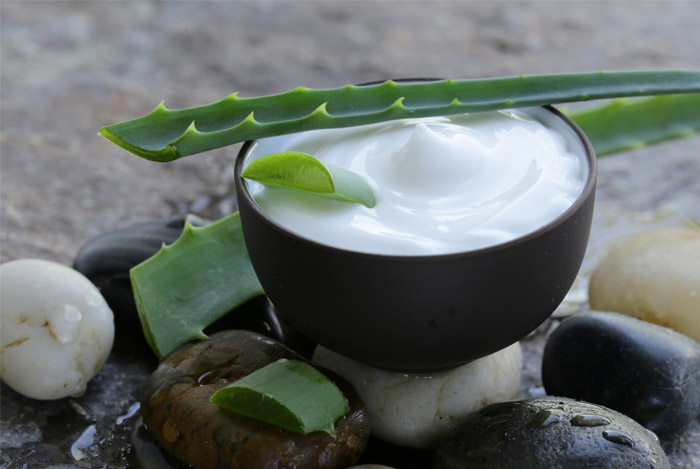
Aloe Vera Is High in Vitamins
Due to its heterogeneous structure, aloe vera contains over 75 different nutrients.
These are vitamins, minerals, enzymes, sugars, anthraquinones or phenolic compounds, lignin, saponins, sterols, amino acids and salicylic acid.
Since Aloe vera juice is full with vitamins A, C, E, B1, B2, B3, B6, B12 and folic acid, it is an easy way to boost your vitamin and mineral intake.
This plant is also rich in minerals such as calcium, magnesium, zinc, iron, selenium, and potassium.
As mentioned before, this plant contains vitamin B12.
This vitamin is known to be rare and aloe is one of the few plants containing this “gem”.
Amino acids are the most important compound of proteins, that is to say, they are the building blocks of protein.
There are about 22 amino acids that are necessary for the human body.
8 of them are said to be essential.
Aloe has been estimated to contain a range from 18-20 amino acids.
What’s more, all 8 essential amino acids are found in aloe.
When it comes to fatty acids, aloe also includes a great number of these important nutrients.
Plant sterols – HCL cholesterol (it lowers fats in the blood), campesterol, and B-sitosterol.
Their main purpose is to fight allergies and acid indigestion.
Besides them, linoleic, linolenic, myristic and some others are also nutrients found in Aloe vera.
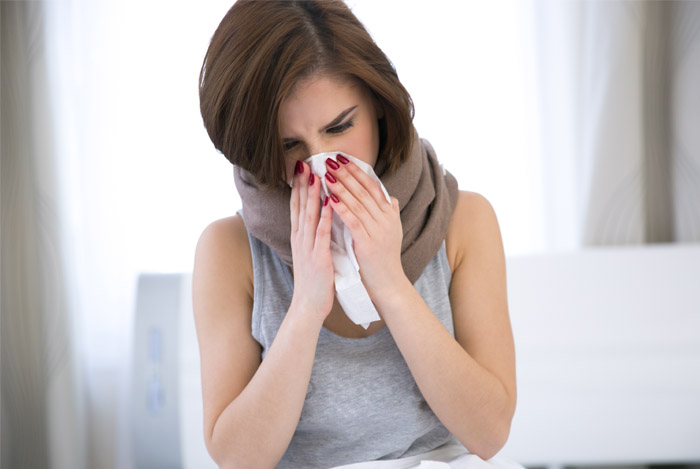
Aloe Helps Boost the Immune System
Aloe vera is full of immune-boosting polysaccharides that maintain and help the immune system to behave properly.
The polysaccharides in aloe vera juice stimulate macrophages, the white blood cells of the immune system.
These white blood cells fight against viruses.
If they are not stimulated, the body’s immune system stays weak and susceptible to inflammations and diseases.
Too much inflammation in the body can cause problems within the immune system.
As a natural outcome, conditions like asthma, eczema, and Crohn’s disease are likely.
However, antioxidants, substances found in aloe, combat the unstable compounds known as free radicals.
Apart from being a great contributor to the aging process, the overload of free radicals can also destabilize the immune system.
Even though free radicals are a by-product of life itself, and that they are completely natural, overloading one’s body with the unnecessary free-radicals can be harmful.
Overloading of free radicals occurs by living an unhealthy lifestyle.
Another way of boosting the immune system is dieting.
For great health, aloe vera is of great help due to its alkaline nutrients.
Namely, alkalines are substances found in whole foods and vegetables, which help to balance overly acidic dietary habits.
Living on mostly acidic foods is not healthy, and aloe vera, as one of the best alkaline provider, balances the 80/20 rule – 80% alkaline and 20% acidic foods in a diet is the key to great health.
For this reason, diseases will not manifest because of the alkaline environment.
Aloe vera has the capacity to be an adaptogen.
An adaptogen boosts the immune system by adapting to external changes happening to the body thus resisting illnesses.
Being an adaptogen, aloe vera stimulates the defense and adaptive mechanisms of the body.
Aloe has the increased capacity to cope with stress, be it emotional, physical or environmental.
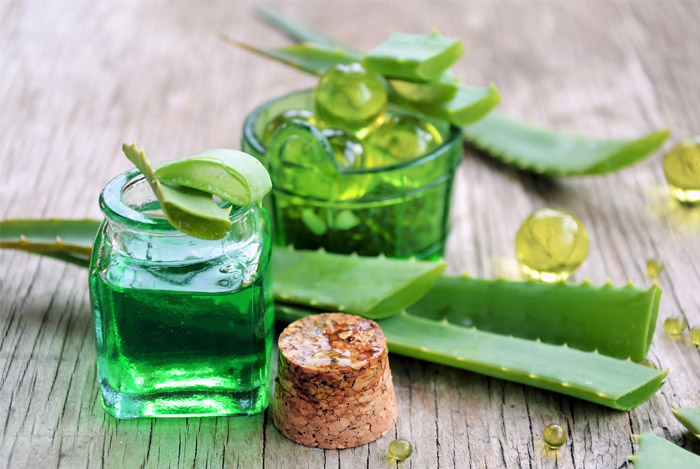
Aloe Keeps Bacteria Away
Thanks to its phytochemical content and active ingredients such as sulfur, lupeol or salicylic acid, aloe vera is considered antibacterial, antimicrobial, antifungal, antiseptic, antibiotic, antiviral etc.
These substances prevent the growth of disease-causing microorganisms thus reducing the chance of both internal and external body infections such as fungal and viral infections.
One study was conducted on the effects of using aloe vera against bacteria such as Staphylococcus aureus, Streptococcus pyogenes, Pseudomonas aeruginosa, and Escherichia coli (20).
Aloe was the main cause of the bacteria growth suppression of Staphylococcus aureus and Streptococcus pyogenes, according to the researchers.
When it comes to fruits and vegetables, one recent study showed that an aloe vera gel coating on tomato plants was a natural bacteria cleanser (21).
Nonetheless, even though it was able to block many types of harmful bacteria, it did not remove them all.
Similar results were found in a different study with apples (22).
This means that aloe vera can be used to clean fresh food as a great chemical-free option.

Aloe Prevents Kidney Stone Formation
Everyone who has had a kidney stone knows how painful it can be.
Sometimes, it takes several unbearable days to pass.
To make it clear, a kidney stone is a solid piece of mineral formed by minerals in the urine.
Live Strong explains how kidney stones start to form.
When the body lacks water, kidney stones come as a natural outcome.
Thus, drinking a lot of water is crucial.
Kidney stones are usually a mix of uric acid, calcium, and other substances found in our urine.
The symptoms of a kidney stone usually are blood in urine, fever, sweating and nausea.
What people are most afraid of when having a kidney stone is the gripping pain.
Besides these grave symptoms, dehydration is one of the most common causes of developing a kidney stone.
Another way of kidney stone prevention is giving your body a substance known as aloemannan.
According to Phyllis A. Balch, the author of “Prescription for Herbal Healing,” via Live Strong, this substance stimulates the production of healthy kidney cells.
At the same time, while the number of healthy kidney cells increases, the rate of crystal deposits drops.
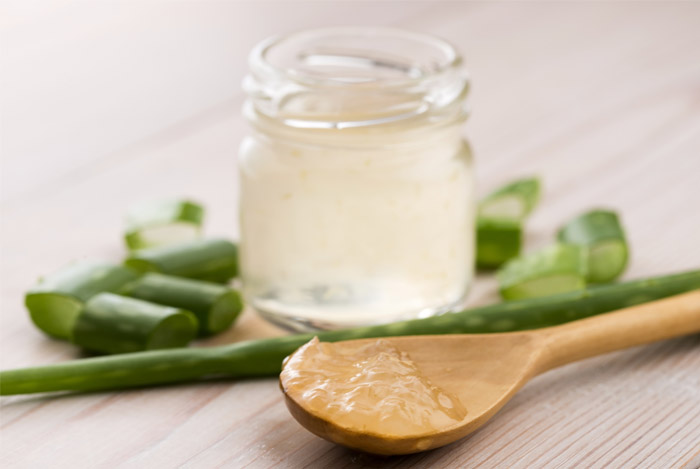
Aloe Improves Cardiovascular Functions and Blood Circulation
Apart from all other body parts and organs, aloe also helps cardiovascular properties function properly.
The extract of Aloe vera has the ability to accelerate the supply of blood, thus purifying it at the same time.
By accelerating the blood delivery, oxygen has room to get to the organs faster.
By a quicker flow of oxygen, the functionality of the organs increases.
The organs that need oxygen the most are the brain and the heart.
Purified blood is a prerequisite for functional organs.
Aloe vera is to “blame” for fresh blood rich in oxygen.
By a quicker supply of blood to all body parts, one will no longer suffer from symptoms like cold fingers and toes.
Feeling fatigued and having a mental fog will no longer be a bother.
The reason why the body will no longer experience these symptoms is that Aloe vera increases the size of the capillaries, thus allowing blood to flow to all body parts without any difficulty.
Even though Aloe vera has been proved to cure many cardiovascular and circulatory problems, one should not take everything for granted.
Making sure to check with a doctor is a must because these claims need more study and research.
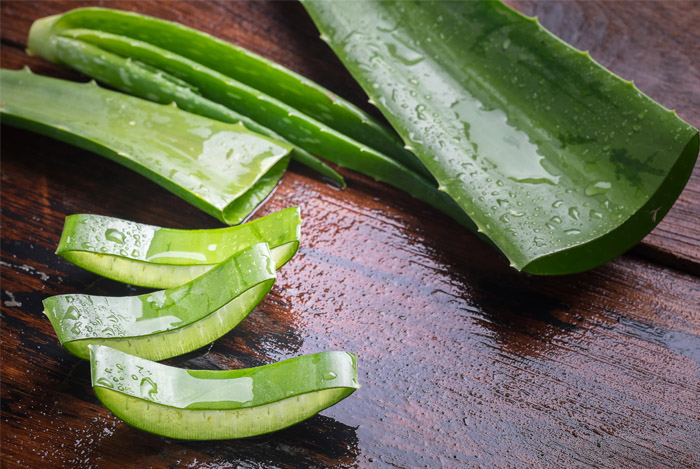
Aloe Slows Down the Aging Process
Aging comes as a natural process.
There is no way to escape the process.
The aging becomes evident when the skin becomes thinner.
Elasticity and firmness are what makes one look younger.
If this is not the case, the skin becomes susceptible to wrinkles.
Yet, it can be slowed down.
There are various methods, particularly if the person leads a healthy lifestyle.
Taking Aloe vera means leading a healthy lifestyle.
Thus, what Aloe vera can offer is a plenty of skin benefits that will improve the skin’s firmness.
Antioxidants such as beta-carotene, vitamin C and E keep the skin hydrated.
Aloe vera is proved to stimulate fibroblast.
Fibroblasts are large cells found in the connective tissue.
Their purpose is to cover and protect the proteins known as collagen and elastin.
When collagen is less produced, the skin gets an older look due to the lack of elasticity.
This is also the reason why it gets less flexible, causing it to produce wrinkles.
This is extremely important in terms of aging because it is their purpose to slow down the aging process.
And not only can it protect the skin, but it can also rejuvenate it.
Aloe vera has one more ability; the ability to be exfoliant.
The power of exfoliant lies within the ability to remove dead skin and regenerate new skin.
For all these reasons, Aloe vera has become very popular and used in the cosmetic industry.
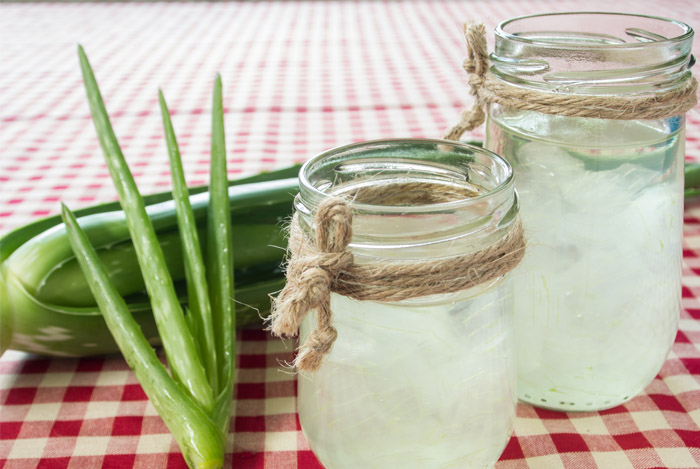
Aloe Helps Hair Growth
Many may wonder if Aloe is good for hair.
Numerous hair care products that include the aloe ingredient prove them wrong.
First of all, aloe reduces sebum, which often can be one of the main causes for slow hair growth rate.
Sebum is an oily substance produced by the human body.
Its purpose is to protect the hair glands.
It also keeps the scalp moisturized.
Nonetheless, the excessive amount of sebum may damage the quality of hair and reduce or slow down its growth rate.
The accumulation of sebum is imminent.
But when it mixes with dirt, it blocks the pores.
The pores are tiny dots, which are the openings of hair.
And if the pores are blocked, it takes time that they become opened once again.
This is why Aloe is good for hair growth because it has antibacterial properties that act as a sort of a cleanser.
Aloe also promotes hair growth because it increases the blood circulation to the scalp.
Due to the enzymes that Aloe vera contain, even the peripheral body parts have the increased blood circulation such as the scalp.
Once again, it is a cleanser of the scalp, but this way, due to its ability to balance the pH of the scalp.
For all those fighting hair loss, there is a natural remedy and treatment that is completely safe to use.
Apart from fighting hair loss, many are also in danger of witnessing their hair become thinner.
Alopecia, a spot baldness diseases, causes hair loss.
Aloe Vera can be said to be effective when it comes to fighting this disease, but only in the cases of the first signs of excessive hair loss.
Like it moisturizes skin, Aloe Vera also has the ability to moisturize the scalp and hair follicles.
Due to its many healthy nutrients, among which are over 20 minerals and vitamins (those are A, B1, B2, B6, B12, C and E), the rate of hair growth will be increased.
Having no side effects, the gel of Aloe Vera can be applied to the scalp directly.

It is well known that many hair products contain Aloe Vera.
Among them are conditioners, as well.
Yet, one does not have to buy a hair product because Aloe vera is a natural hair conditioner itself.
Once one has overcome the problem of hair loss and hair growth, they want their hair to get to another level.
Sheen, luster and shine hair is that next level.
Regular use of Aloe vera might bring the desired effect.
It is because it contains many medicinal properties that restore these conditions.
Also, it makes hair softer without any trace of dryness.
The best thing is yet to come.
Even though Aloe vera has some side effects on its own, hair conditioners are the ones who have much more side effects.
Greasy buildups that are common for hair products are nothing compared to a natural remedy such as this plant.
Dandruff is one of the most common hair problems people experience.
Dryness is the main reason why dandruff overwhelms hair.
However, Aloe vera can prevent dandruff because of its cooling properties.
Also, anti-fungal properties of Aloe prevent dandruff from reoccurring.
Once your hair gets cooler, your natural hair oils will be in balance, and your scalp will also experience the cooling sensation.
As mentioned before, Alopecia is a hair disease that causes bold spots on the entire human body.
Even though both men and women are susceptible to it, it is more common for men.
Why one suffers from Alopecia might be for two reasons: either he or she is genetically destined to suffer from it, or the cause is an unhealthy lifestyle.
Being one of the most common hair diseases, many want to get rid of it.
It can be reduced with the regular use of Aloe.
In some cases, it can be even cured, but only if it treated since the first sign of hair loss.
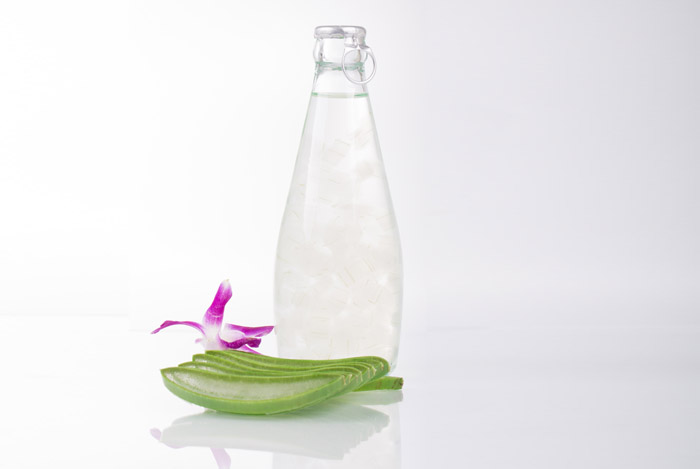
Aloe Stimulates Weight Loss
There is no doubt Aloe may help with weight loss.
It comes as a secondary effect because of the properties mentioned in the article.
First, it is a laxative. Aloe vera prevents constipation, which ultimately lead to a healthy stomach.
Getting rid of unnecessary body waste also brings beam scale numbers lower.
Second, drinking Aloe vera juice regularly boosts the metabolism rates in the body.
Boosting metabolism means losing more weight.
Third, as it removes toxins from the body, it helps the digestive system to function properly.
By detoxifying his or her body, the person will drop more weight.
Side Effects and Dosing
It goes without saying that this plant is incredibly useful and healing, yet one should be cautious when using it.
Especially if it is long-term use.
Still, the importance of seeing a doctor before undergoing any complementary or alternative treatments for health problems should not be overlooked.
Depending on the aloe vera’s byproducts (aloe gel, aloe latex, and aloe extract), different side effects may occur.
Aloe gel is likely safe when applied to the skin.
However, it is possibly safe when adults use it orally.
Some of the most probable side effects are burning and itching of the skin.
When it comes to latex, it is possibly unsafe, but likely unsafe when taken in high doses.
The most probable side effects of aloe latex are stomach pain and cramps.
Large amounts and long-term of aloe latex might cause diarrhea, kidney problems, blood in the urine, low potassium, muscle weakness, weight loss, and heart disturbances.
As for aloe leaf extract, it may cause liver problems, but this is highly improbable for people who are not sensitive to aloe (23).
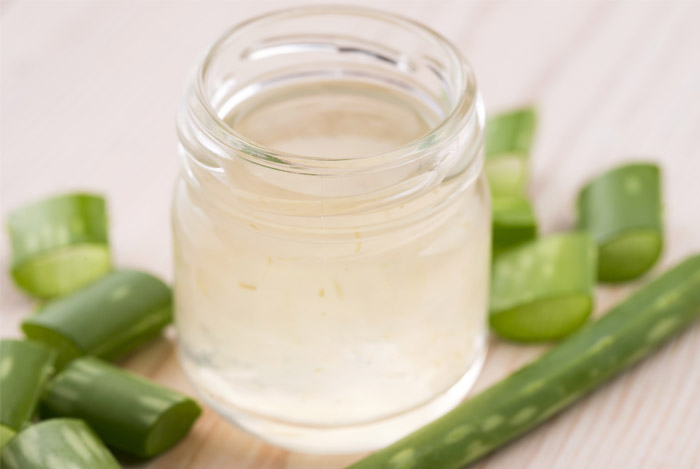
Also, aloe should be avoided during pregnancy or breastfeeding.
It may also be unsafe for children, especially if taken by mouth.
People who suffer from diabetes should be cautious for it lowers blood sugar (24).
There have been a few reports of liver problems in some people who have taken an aloe leaf extract; yet, this is uncommon.
It is thought to occur only in people who are extra sensitive (hypersensitive) to aloe.
When it comes to dosing, the potency of aloe vera is a crucial factor to consider.
Improper dosing may lead to side effects such as loss of electrolytes, especially potassium.
This plant has not been thoroughly tested, and safety and effectiveness may not be proven.
The following doses have been studied in scientific research (25): if taken by mouth and for constipation, 100-200 mg Aloe vera or 50 mg aloe latex taken in the evening, even though it is not completely safe to use.
If applied to the skin and for psoriasis, aloe extract 0.5% cream applied 3 times daily.
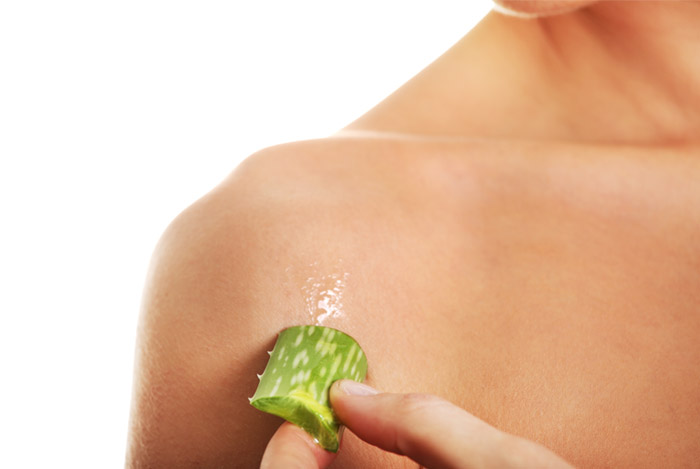
How to Store, Grow and Take Care of Aloe Plants
One more advantage of this plant is that it demands no special treatment.
Being a tropical plant, it grows faster outdoors during warmer months.
Although the sun is essential for it, aloe vera does just fine in the house.
When colder outdoors, it should be kept indoors and protected from frost.
Just as it needs the sun, it needs water, as well, but not too much.
This plant does not favor over-watering.
Aloe likes a draining soil. Therefore, it has to be watered sparingly in the winter because it takes time for aloe vera to dry up.
Watering it once or twice a week is enough. In the summertime, the plant needs more watering, but the soil should dry out between watering.
A drainage hole in the pot is a great way to prevent roots from rotting because they are to rot when exposed to wet periods for a long time.
The best way to check the soil is to get about 2-3 inches into the soil.
Another way of taking care of the plant is examining the leaves.
Aloe leaves should grow upward.
If this is not the case, it is probably due to the insufficient light exposure.
If leaves are curled and thin, the plant demands more watering.
If, however, the leaves are brown, the plant demands less direct sunshine exposure.
If the plant is growing slowly, it might be due to the alkaline environment.
Either water or soil has too many alkalines.
Moreover, it may be the plant was damp for so long, has too much fertilizer or needs a bigger pot.
Another important thing to do is repot the plant.
Bigger pots mean more room.
A clay pot might be a perfect choice.
The next thing to do is fill the pot with soil, set the aloe’s root ball right in the middle.
After that comes spreading pebbles or shells over the exposed dirt.
This will hold in moisture and replicate the aloe’s natural environment.
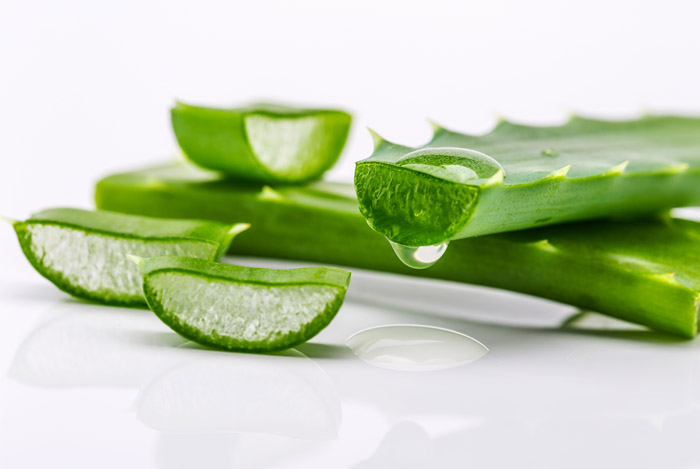
Conclusion
Needless to say, aloe vera has a wide spectrum of health benefits and uses.
Although aloe vera does wonders, some of its properties are yet to be proved by controlled studies.
Until then, they are just myths.
Healing sunburns faster, alleviating symptoms from chemotherapy, detoxifying the body are just some of the health benefits it brings.
What’s more, it is an easy-to-care plant that demands no particular conditions.
It can be used orally, or applied to the skin.
Yet, there are also many side effects, which can lead to stomach illnesses or even kidney failure.
They usually take place because of overdosing.
This is the reason why one should check with their doctor first, and make sure his way of use is completely safe.
FDA Compliance
The information on this website has not been evaluated by the Food & Drug Administration or any other medical body. We do not aim to diagnose, treat, cure or prevent any illness or disease. Information is shared for educational purposes only. You must consult your doctor before acting on any content on this website, especially if you are pregnant, nursing, taking medication, or have a medical condition.
HOW WOULD YOU RATE THIS ARTICLE?
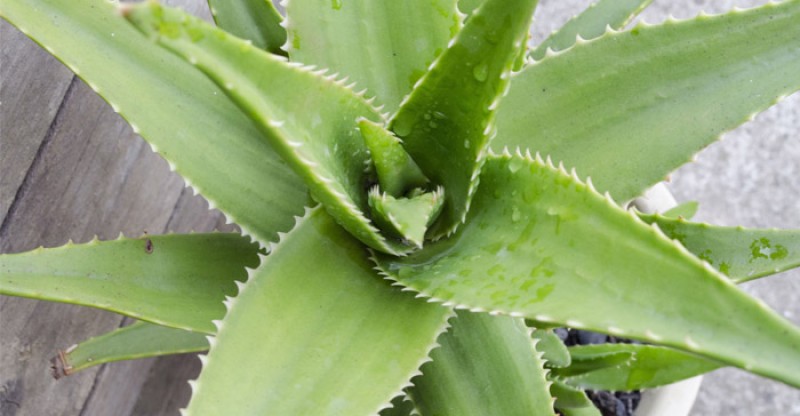


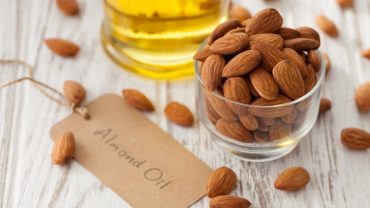
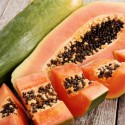


How to use in aloe vera plant? And how many times to take aday? We have aloe vera plan but I don’t know how to use it..
Hi Melody,
The idea is to harvest inside gel, after that you can do many things with it. Harvesting is not difficult. You have to cut leaves carefully at the bottom (ripping them out is not a good idea) and store them in a fridge. When you need aloe gel, all you have to do is to cut the leaves and scrape gel with a spoon. Once you’ll have this gel, you can do plenty of things with it. You can mix it with baking soda, water and lemon to get a mouthwash. You could also mix 1/3 of aloe gel with 2/3 of rubbing alcohol and add 8-10 drops of essential oil to get natural hand sanitizer. There are quite a few of home recipes, I should probably write a separate article just about aloe recipes. 🙂
Helen
Can i give aloe vera to my kids?